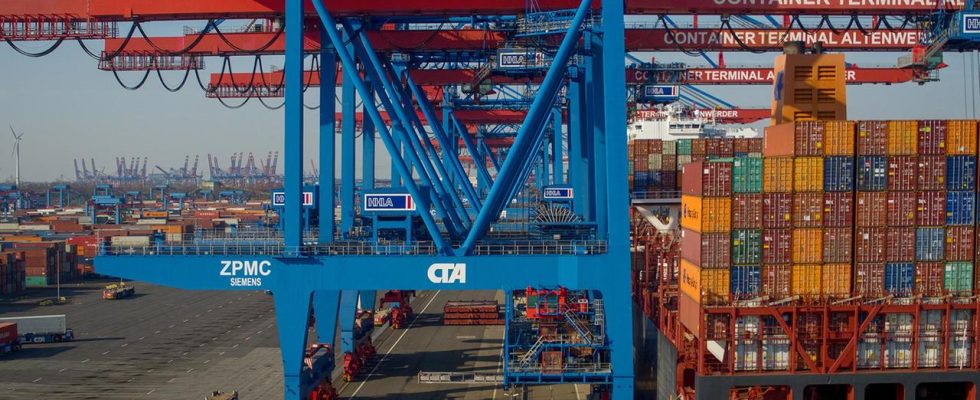The German economy has the reputation of being the world export champion. Last year, however, the engine of foreign trade sputtered – and companies continue to complain about a lack of orders.
The decline in German foreign trade in December was significant: According to figures from the Federal Statistical Office, exports fell by 4.6 percent compared to the previous month. It is the biggest decline in a year. Economists polled by Reuters had expected a decline of just 2.0 percent.
Alexander Krüger, chief economist at private bank Hauck Aufhäuser Lamp, said the global economy was too weak to provide momentum. The decline in December is also reflected in the annual balance. The bottom line is that foreign trade shrank by 1.4 percent in 2023 compared to the previous year. “After last year’s minus, the sector is facing another difficult year. The tensions in the Red Sea are creating new trade risks,” said economist Krüger.
The New Year is off to a slow start
Surveys by the Munich Ifo Institute also confirm the downward trend in German exports. Companies’ expectations deteriorated significantly in January. The corresponding barometer fell to its lowest level since September 2023. The head of the ifo surveys, Klaus Wohlrabe, complained: “Exporters need new impulses.” According to the Ifo Institute, these are currently lacking in the entire German economy, and more and more companies are complaining about a lack of orders.
The lack of orders then affects both industry and the service sector. According to a current ifo survey, more than one in three industrial companies reported missing orders in January. A year ago it was only about one in five companies. According to Ifo economist Wohlrabe, the lack of orders has become significantly worse: “Hardly any industry is spared from this. In addition, the order backlog is dwindling.”
Hope for falling interest rates
Even during the corona pandemic, companies had registered overfull order books. The order backlog was also due to the disrupted supply chains. However, many preliminary products are now available again and companies have processed many of the backlogged orders.
The economy and financial markets are now hoping that interest rates will soon fall and thus the costs of investments will fall. This could mean that more orders will be received again. However, both the European Central Bank and the US Federal Reserve have recently expressed caution. A reduction in interest rates in the euro area is not expected before the summer.

